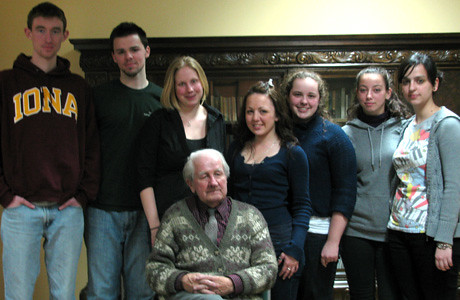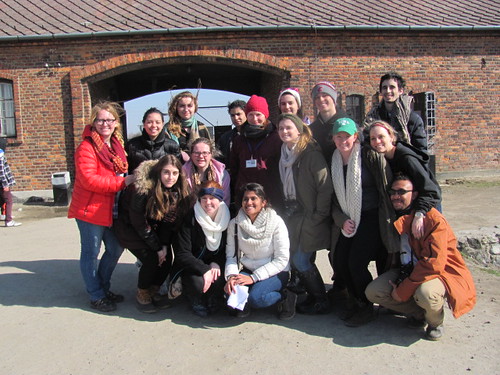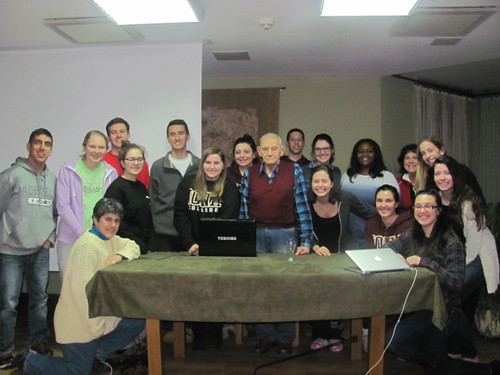
|
| This image perfectly captures the solemnity of the day that we spent at Auschwitz I. I could not help but be reminded of the words, “the presence of absence and the absence of presence”. |
During our last night in Poland, we had a group discussion about how we would take what we learned there and use it in our lives back in New York. We talked about spreading advocacy and love, ultimately as part of an effort to avoid any hatred and discrimination like what was evident in the Shoah. The Holocaust and Nazi Germany are not things that should be forgotten. Rather, they should be the lens through which we look at the future of our world. They should recognized, and in doing so, there will be more efforts made in preventing it from happening again. After all, “Those who do not remember the past are condemned to repeat it.” –George Santayana
While in Poland, we stayed at the Centre for Prayer and Dialogue—two important things when discussing the Holocaust. The Centre encourages visitors to simply talk about what happened just a block away during the Second World War, and does so in a peaceful, welcoming way. This dialogue focuses on four different “voices: the voice of the earth, the voice of your heart, the voice of the other, and the voice of God. Engaging in dialogue while listening to these four voices can lead to a world of understanding and of acceptance.
Father Manfred, in one of his lectures, reminded us that dialogue is necessary so that all people can live together and form trust with open encounters. He also said, in another lecture, that it is better to look into somebody’s eyes, rather than at them while engaging in this dialogue. By doing this, we are observing something that lies behind the eyes and therefore developing a deeper relationship with the person. Our relationships, according to Father Manfred, and the responsibility we have in them is what helps us make sense of our lives.
These wise words from Father Manfred go hand-in-hand with the Teaching of Respect. Documents that were discussed in class like Nostra Aetate, We Remember: A Reflection on the Shoah, Dabru Emet, and many more are all a part of the Teaching of Respect, which is in direct response to the Teaching of Contempt. I have faith that the world is progressively reaching a point of acceptance, love, and respect for all humans. It is no secret that it best reached through prayer and dialogue, as we got to experience first-hand during our unforgettable time spent in Poland.

|
| An image of stones at the entrance of Auschwitz-Birkenau. In the Jewish faith, stones are used instead of flowers for remembrance, as they are permanent. |





















